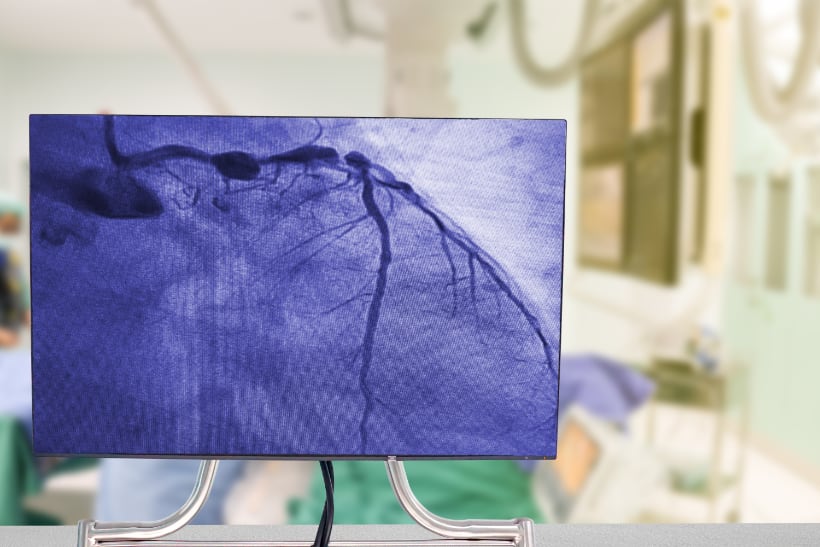By Dr Jonathan Shurlock, edited by Dr. Ahmed El-Medany
At TCT 2022 in the late-breaking clinical science session Dr Daniel Jones presented the findings of the BYPASS-CTCA study. The study authors randomised 688 patients (mean age 70 years; 84% male) with previous CABG to invasive coronary angiography (n = 344) or angiography preceded by CCTA (n = 344).
45% of participants presented with ACS, with 68% having previous MI and 48% having previous PCI. The mean number of bypass grafts in both groups was 1.2. Patients who underwent adjunctive CTCA had a shorter duration of procedure (17.4 vs 39.5 min; OR -22.12; 95% CI -24.68 to -19.56), significant less contrast used, and less contrast induced nephropathy (3.2% vs 27.9%; P < 0.0001). Patients who underwent CTCA prior to the procedure also reported increased patient satisfaction on post-procedural survey. There was a significant reduction in peri-procedural complications for those who underwent CTCA (2.4% vs 10.8%; P < 0.001), including periprocedural MI (0.58% vs 6.43%; P = 0.001). The composite endpoint of MACE was also lower in those undergoing adjunctive CTCA at 12-month follow up (16.28% vs 29.36%; adjusted OR 0.44; 95% CI 0.30-0.64).
When presenting the findings Dr Jones highlighted that in centres with CT access, pre-procedural CTCA in these patients is the most logical approach. Dr Jones acknowledged that CT is not readily available at all centres. Following the presentation there was some discussion regarding the risks of contrast use, the logic of this approach, and the cost effectiveness of it.
The study protocol can be found here: https://pubmed.ncbi.nlm.nih.gov/34733947/. The full paper is awaiting publication.

